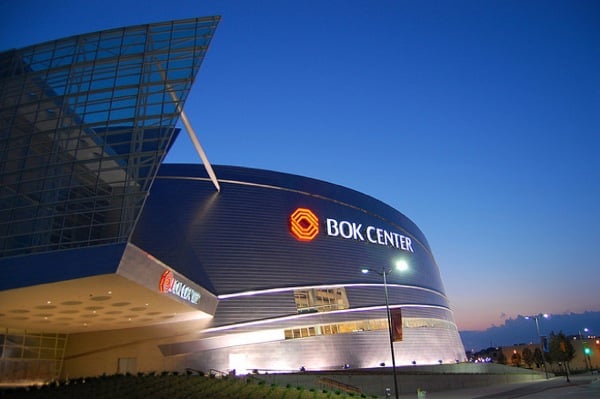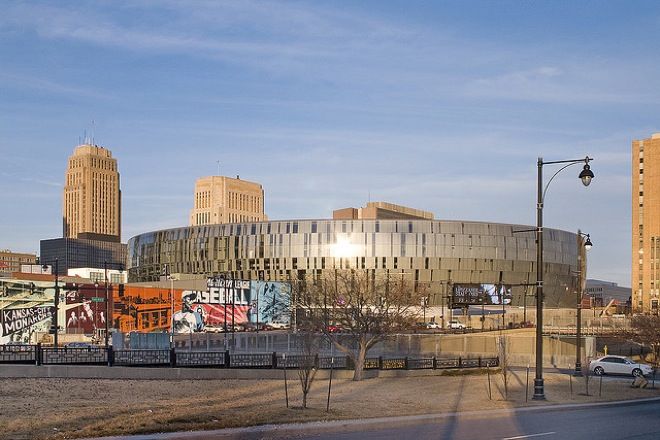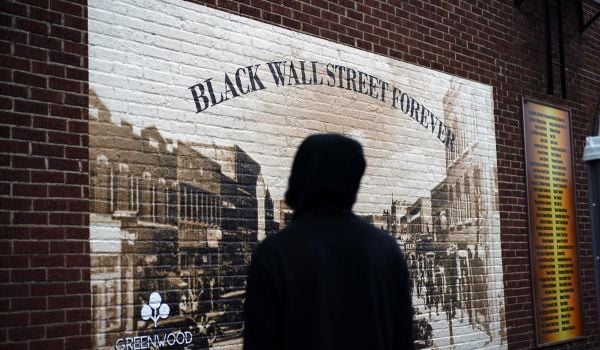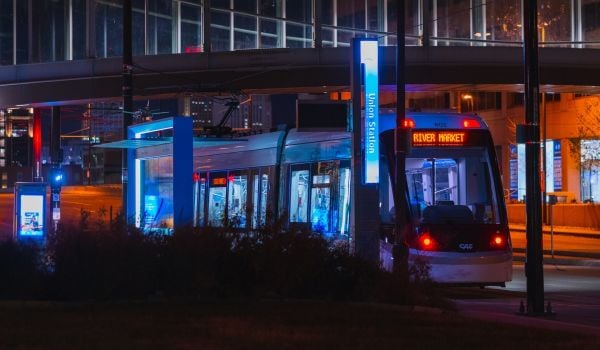Imagine opening a $276 million arena in October of 2007, only to have the economic recession rear its ugly head two months later (at least officially). To make matters worse, the arena will rely on funding from hotel taxes and car rentals—two sources that need tourism dollars in a strong economy. Meet the Sprint Center in Kansas City, Missouri.
Now picture a brand new $196 million arena opening its doors in August of 2008. By now, the recession is in full swing. A city proposal earmarks $178 million of the costs to come from upcoming sales-tax revenues. Consumer spending across the United States is dropping every month. Welcome to the BOK Center in Tulsa, Oklahoma.
Only 250 miles apart, Kansas City and Tulsa share a number of commonalties. Both cities are in the Great Plains region, with similar elevations and climates. And in the current economic recession, both cities are proud owners of profitable arenas—without a major sports franchise.
In the summer of 2005—only two months apart—Kansas City and Tulsa broke ground on new arenas. It was no secret that Kansas City wanted an NBA or NHL franchise, yet no agreement had been reached. Vanderbilt economics professor John Vrooman warned that the “build-it-they-will-come crap-shoot was way to much public risk for [Kansas City] to take.”
Tulsa’s aspirations were modest by comparison. Larger in-state neighbor Oklahoma City was better suited for a professional sports franchise, as Tulsa never publically lobbied for an NBA or NHL team.
Regardless of intentions, both venues opened their doors without a prominent tenant. Currently, the Tulsa Shock of the fledgling WNBA represents the BOK Center’s most notable full-time resident. The Sprint Center is re-welcoming the AFL’s Kansas City Command after a three-year hiatus. Yet during a time when approximately half of the NBA and NHL franchises are losing money, the new arenas in Kansas City and Tulsa are generating profits.

BOK Center in Tulsa, Oklahoma | sroemerm
Kansas City received $1.8 million in revenues from the Sprint Center in 2010. Without a major sports team, the arena has greater flexibility in scheduling entertainment events. After a brief flirtation with the storied Pittsburgh Penguin franchise, the city cooled on the idea of acquiring a team. Kansas City mayor Sly James has been openly skeptical of taking on an expansion franchise, as ticket sales for sold-out concerts and special events can generate more revenue—with less overhead—than a host of sporting events that feature a perennial basement dweller. Furthermore, pro franchises often arrive with the expectation of cut-rate leases and other deals—often at the expense of the city and taxpayers.
A similar story has played out in Tulsa. The BOK Center has generated an operating profit of $2.7 million during its first two fiscal years. A sold-out concert can generate up to $200,000 in net income, while the most recent NCAA men’s basketball tournament—over a span of two days—raked in $566,870. The venue ranks ninth in ticket sales among U.S. arenas while anchoring the 56th largest metropolitan area.
The original plans to fund the two venues have had mixed results. Recent tax revenues from hotels and car rentals in Kansas City fell short of projections, while state law prohibits Tulsa from taxing the ticket sales of certain events—including the recent men’s basketball tournament. Both cities, however, are not complaining. As venues in more heavily populated areas struggle to stay afloat, Kansas City and Tulsa are plugging right along.
















